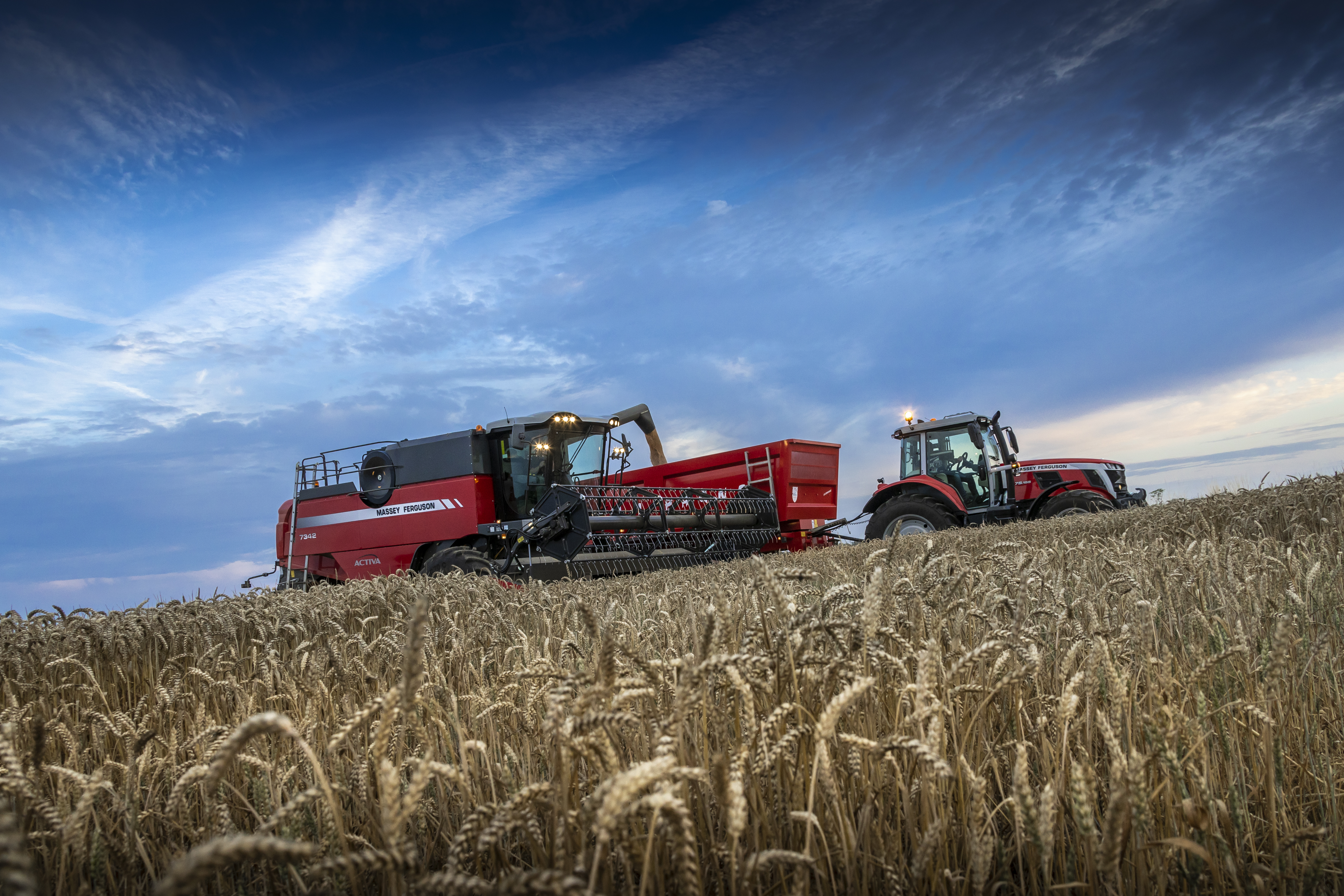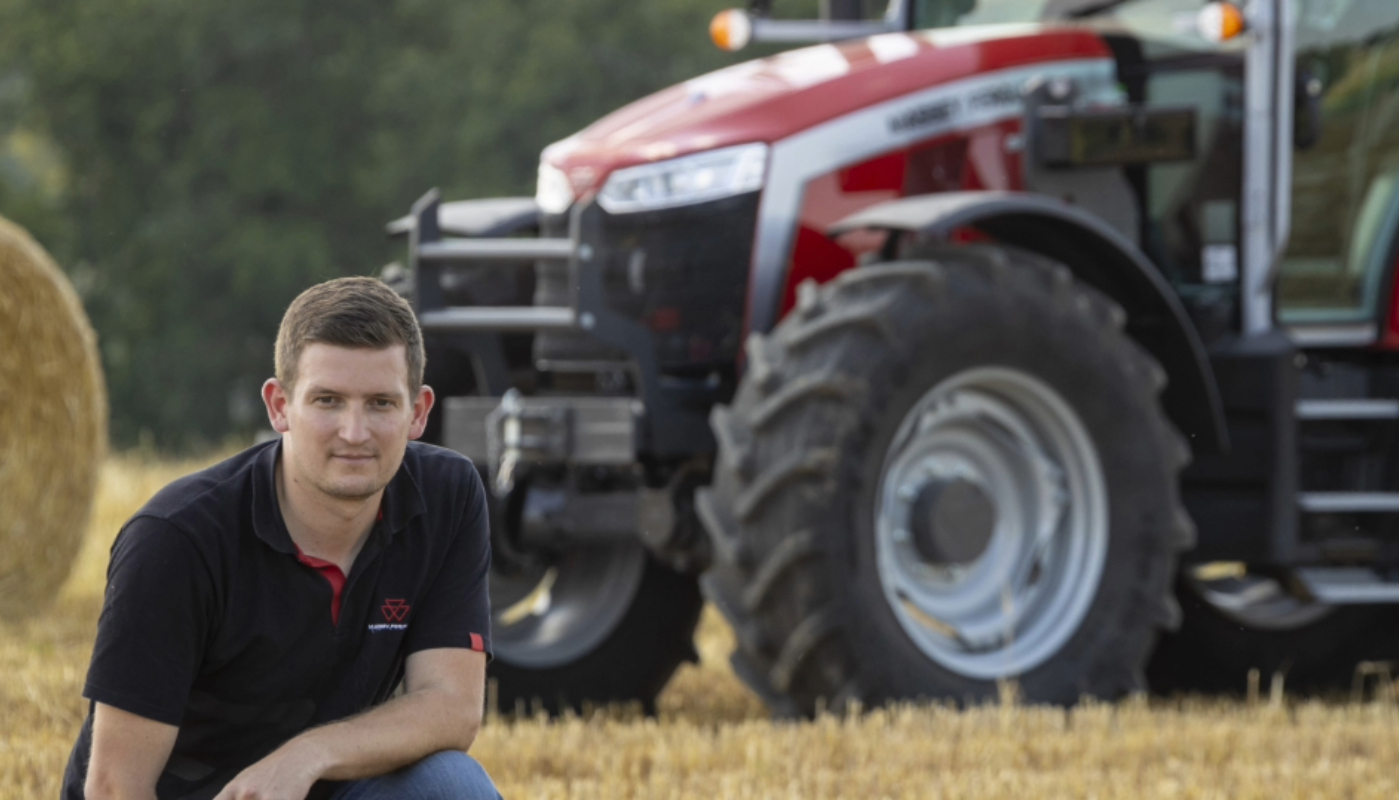Missouri row-crop producer claws his way into agriculture farming tracts others deemed too small.
The unmistakable trappings of urban sprawl surround Preston Owen. Here, north of Kansas City, Missouri, rural parkways and roundabouts connect an ever-growing network of gated communities and golf courses. Not too long ago, homes only dotted this landscape. Now, they dominate.
These signs of the times are clearly visible from the cab of Owen’s tractor. He can’t help but notice the stadium lights of a new baseball complex built less than a half-mile from where he plants corn on this late April day. To his west, the control tower for Kansas City International Airport stands resolute on the horizon.
Owen knows what’s coming; he’s seen it before. Like an unstoppable tidal wave, suburbia will eventually swallow this piece of Missouri countryside. Rows of corn and soybeans will inevitably yield to rows of homes. The city will prevail, and Owen will have to farm elsewhere.
Yet, if it weren’t for these pockets of seemingly forgotten ground tucked between subdivisions, Owen may have never had the opportunity to farm.
“Little chunks of ground that have been developed around, that’s where I got my start in the Kansas City suburbs,” Preston says. “I’d farm 5 acres here, 10 acres there, 3 acres there — just little undesirable tracts that no one else wanted to farm. That’s how I carved out my niche and started Show-Me Farms.”
What began with a little more than 100 acres less than a decade ago has become a full-blown commercial farming operation. Today, Show-Me Farms, based in Polo, Missouri, comprises roughly 6,000 row-crop acres across six counties. Owen raises corn, soybeans and wheat.
Restarting the Family Farm
While he grew up in the suburbs of Kansas City, Owen did have a connection to agriculture. His parents were raised on family farms in Missouri. Young Preston spent his summers on his grandparents’ farms, helping with planting and harvest and putting up hay. When he reached high school, he worked for a few farmers in the Kansas City region. He loved every aspect of farming.
“If you had asked me what I wanted to do when I was in grade school, I would’ve told you ‘farmer,’” Preston says. “In middle school, I’d have said ‘farmer.’ In high school, I changed that to ‘custom harvester,’ but it was still farming.”
After graduating high school, Owen attended the University of Missouri where he’d study plant science and genetics. During college, he worked a few seasons as a custom harvester before planting his first tiny patchwork crop during his junior year.
“At that point in time, we had $7-$8 corn and $15-$16 soybeans, so it was hard for a guy like me that didn’t have any money or any equipment to get started,” Preston recalls. “So, those undesirable tracts were the only way I was able to get started. Mom and Dad were a little nervous about it, but it was on such a small scale, it was hard to go wrong.”
Owen finished his bachelor’s degree in 2014 and turned his attention completely to farming. By 2015, the high commodity prices that had hindered his initial endeavors had been replaced by decade-low prices.
“As the old saying goes, timing is everything,” Preston says. “Those low prices coupled with high inputs and cash rents caused a couple major operations around here to fold, and I was at the right place at the right time to pick up more acres. We’ve been growing ever since.”
Outside the Box Agriculture
While realizing his childhood dream job has gradually moved Owen farther from the hustle and bustle of city life, he hasn’t left his Kansas City connections behind. In particular, one partnership has helped improve his operation’s sustainability while lowering his fertilizer bills.
“We work with a company, Synagro, and we’re contracted to spread all the biosolids for Kansas City,” he explains. “So, when anyone in Kansas City flushes their toilet and wonders where it goes, it ends up in one of our fields somewhere. It’s about the most ‘green’ fertilizer possible, and it’s 100% renewable. We’ve been able to delete a lot of granular, non-renewable phosphorus and potassium in our operation as well as significantly reduce the price of fertility.”
Owen has his sights on growing his operation — ultimately moving farther away from a city that continues to also grow. While he still farms a few suburban fields, he admits that he won’t miss the leery looks from neighbors who don’t understand the tools of modern agriculture — or the single-digit hand gestures from 9-to-5ers who feel inconvenienced by his slow-moving vehicle during their daily commute.
“I still really appreciate how plants function and grow and produce yield. That hasn’t changed,” Preston says. “There’s a thrill you get from raising a crop and doing a good job at it while being a good steward of the land.”
Planting Perfection
When it comes time for the planter to roll each spring, Owen is like any other farmer: He has no time to dawdle. And with 6,000 row-crop acres spread across six northwest Missouri counties, it’s even more imperative that he gets in and out of the field and down the road to the next one as quickly as possible.
So, when the time came to select a new planter, Owen opted for the Massey Ferguson VE Series MFVF24-30 — a 24-row, high-speed, front-fold, narrow transport planter with a central fill system. Drawing on a legacy of dependable and proven design from White Planters, the Massey Ferguson VE Series is a straightforward, durable planter that delivers consistent, accurate seed placement for optimum yields.
“It checked all the boxes for what we needed in a planter,” says Owen, who operates Show-Me Farms in Polo, Missouri. “It was also cost effective compared to its industry counterparts, even before factoring in AGCO’s multiunit discount.”
Owen’s previous planter had been retrofitted with Precision Planting® products, so he ordered his Massey Ferguson with many of these technologies installed right at the factory — including vSet2® seed meters, SpeedTube® seed delivery system for high-speed planting and DeltaForce® automated row-by-row downforce control. Owen also added an onboard liquid fertilizer system with FurrowJet,® which allows him to apply starter fertilizer in the furrow while planting.
“Probably the best attribute of this planter is the high-speed planting with hydraulic downforce,” Owen says. “In optimal field conditions, we’re able to plant at speeds up to 10 mph, and our seed placement and singulation is just about perfect. Putting that liquid fertilizer in the seed trench also helps us achieve even emergence.”
He says that not only is setting the planting depth on the VE Series easy, but the Massey Ferguson also holds the depth more reliably than his previous planter.
Tracing his affinity for AGCO equipment to the Allis-Chalmers dealership his mother’s family once owned, Owen currently pulls his VE Series with a Fendt® 942 Vario. However, thanks Precision’s 20/20® Gen3 monitor, the Massey Ferguson planter could be pulled by a tractor of any color, he says.
Owen adds that his AGCO dealer, Ziegler Ag Equipment in Chillicothe, Missouri, offers service and support that far exceeds what he received from his previous dealer of a different equipment manufacturer.
“From some of our farthest farms, we’ll pass two or three of those other dealerships on our way to get to Ziegler,” Owen says. “We go the extra mile to get to them because they really go the extra mile for us.”























Share